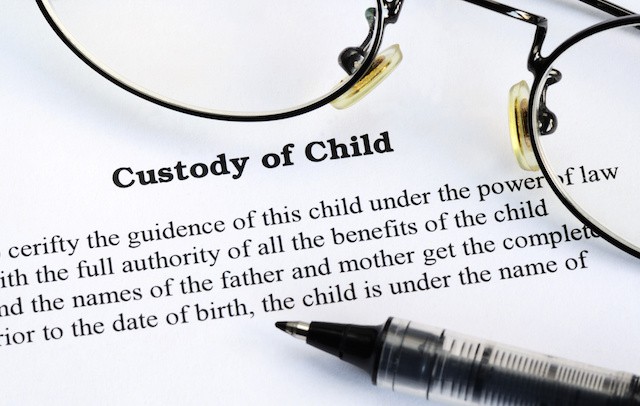The biggest celebrity divorce of 2016 has without a doubt been that of A-list actors Brad Pitt and Angelina Jolie, who have six children between them. Divorce always has the risk of being a messy affair, but one of the most challenging aspects for spouses navigating a divorce is to work together to create a custody plan for their children. Parents are generally free to create their own parenting and time-sharing plan for how they will care for the children, although the courts will step in and make rulings on custody and visitation when the parents cannot reach an agreement. Thus far, Pitt and Jolie appear to have been working together to create a plan and those workings are generally not made public, so there is only limited information about the proceedings, but they did enter a temporary custody agreement with the California court overseeing their divorce which appears to have been extended in recent weeks.
What We Know About Their Temporary Child Custody Agreement
In her initial September filing – which was apparently made only days after Jolie decided to get divorced – Jolie asked the court for sole physical custody of their six children with only visitation for Pitt. Generally, courts prefer to award shared custody to both parents in order to foster ongoing relationships between the children and parents, and will award sole custody only where continuing custody with the other parent would not be in the best interests of the children.
The couple later filed a temporary child custody agreement which gave temporary sole custody of the six children to Jolie with visitation for Pitt, and also included an agreement that both parties would meet with therapists to deal with family-related issues.
A temporary child custody agreement is one that is set in place during the course of a divorce proceeding. Because divorce proceedings usually last months, and can even go beyond a year, it is important to have an immediate plan for taking care of children. A court can then make a final custody order based on the couple’s agreement or based on its own analysis of the best interests of the child. In many cases, the temporary custody order is simply converted to a permanent order, but parents may want to renegotiate the agreement or have the judge weigh in to make a final order.
A representative for Jolie said on November 7 that the couple had renewed the terms of the temporary custody agreement, but it is not clear that those terms will be included in a final custody order as part of their divorce. Pitt filed a response to Jolie’s petition for divorce several days before the November 7 announcement which asked for joint custody of the children.
Handling Custody (Parenting and Time-Sharing) Matters in Florida
Anyone entering into the process of divorce and/or custody matters should understand that family law matters are almost entirely an issue of state law, and so what you may hear about a divorce proceeding in California does not necessarily reflect what a court in Florida would do, as Florida has its own body of laws governing divorce and custody.
For example, “custody” is no longer the language used in the Florida laws; instead, our state’s laws discuss “parenting” and “time-sharing” with regards to which parent has the legal right and responsibility to take care of children. That said, many of the underlying concepts are similar, and Florida courts will also make temporary orders regarding parenting and time-sharing issues, which can later be converted into permanent orders based on an analysis of what is in the best interests of a child.
Contact a Florida Family Law Attorney Today
If you have any questions about divorce, custody, parenting, or time-sharing in Florida, please contact The Law Office of Ira M. Marcus, P.A. today to schedule a consultation regarding any and all Florida family law matters you are facing.

